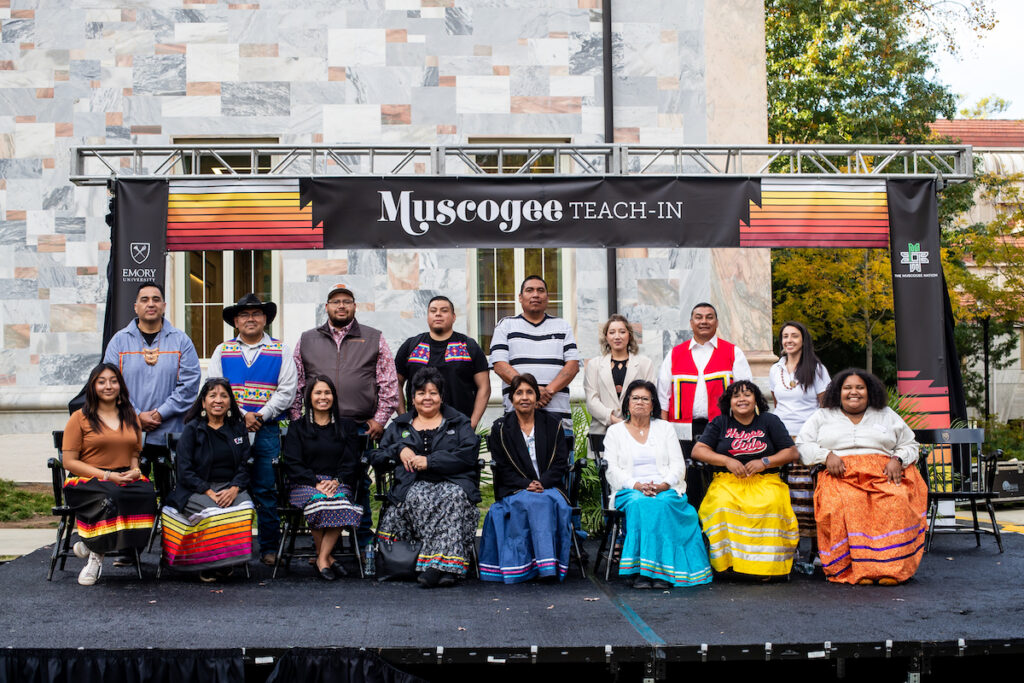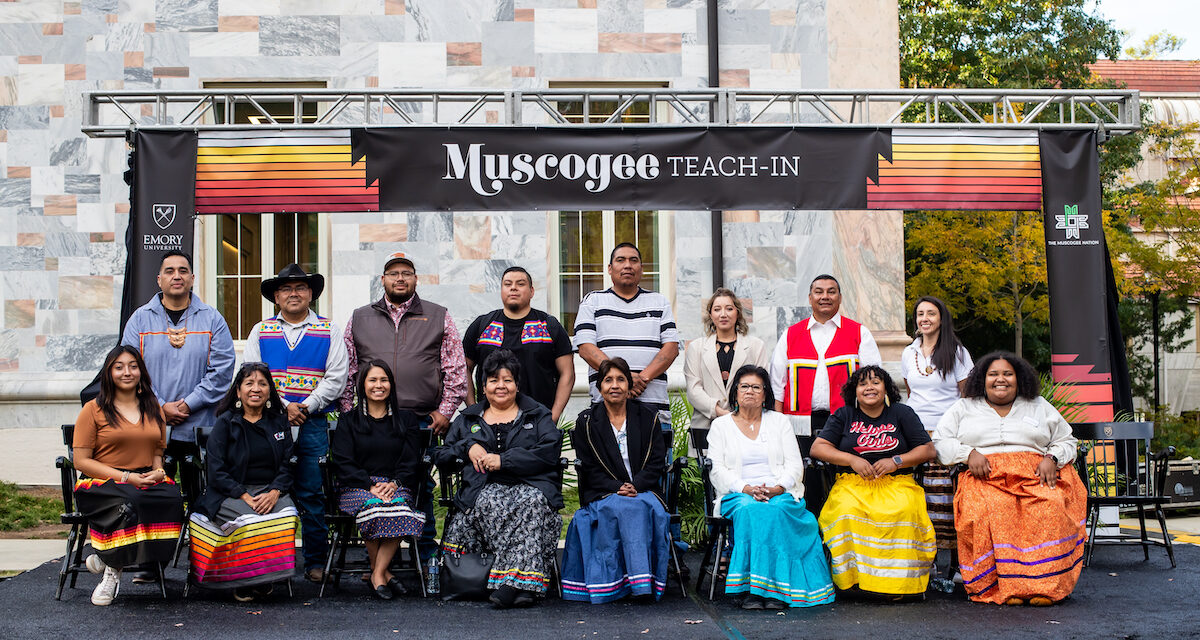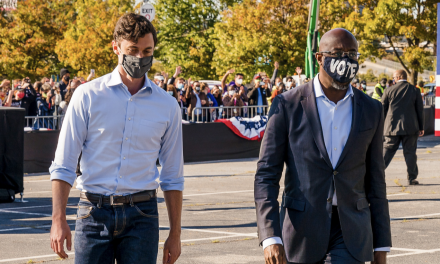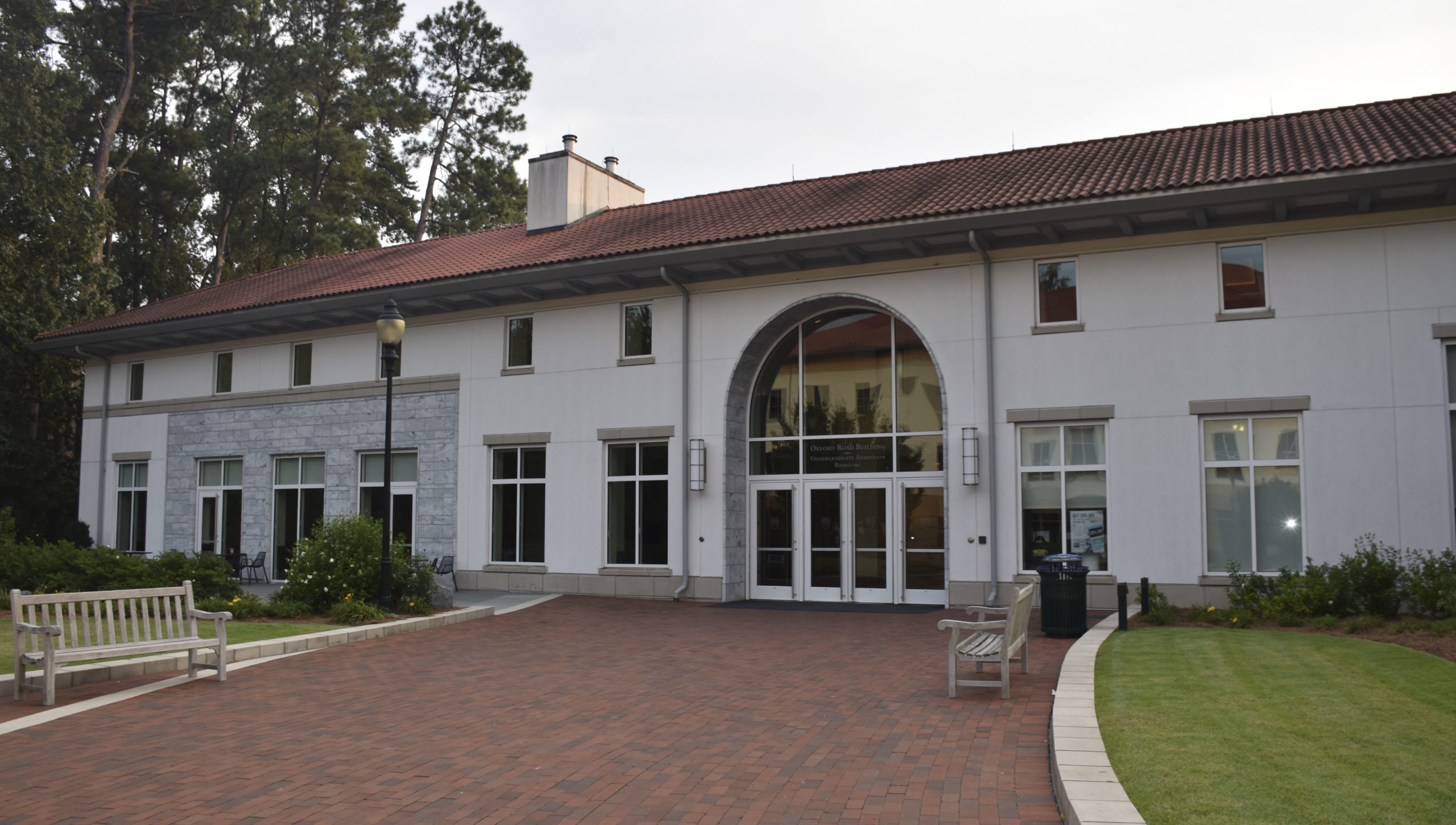The Mellon Foundation awarded Emory University, which sits on land that the Muscogee Nation were forced to relinquish to the U.S. government in 1821, a $2.4 million grant. The College of the Muscogee Nation (CMN) (Okla.) will receive over $1 million from the grant to further foster a partnership between the two institutions.
With the grant, Emory and CMN will cultivate “collaborative and independent programs,” promoting Native American and Indigenous studies as well as preserving the Mvskoke language, the University announced Feb. 14.
Associate Professor of Anthropology Debra Vidali, who is a core faculty member for the Native American and Indigenous Studies Initiative, said that the path to Indigenous studies at Emory has been “a journey of recognition, repair and learning how to be in good relations in the wake of the horrific and often erased histories of dispossession and genocide in this region of the Southeast.”
“This is an incredible moment for Emory,” Vidali wrote in an email to the Wheel. “To partner with, and welcome home, and move aside, so that the Muscogee Nation, Muscogee knowledge and Muscogee people may flourish here on their ancestral lands. This partnership opens up the possibility to unsettle or shift what it means to learn, listen and teach. It opens up the possibility for recognition of Muscogee sovereignty and Emory’s relation as a guest on Muscogee land.”
Emory will work with CMN to develop an Indigenous studies minor, according to CMN President Monte Randall.
“It’s going to take a lot of research on both of our parts,” Randall said. “Just building those programs, determining what the need is across tribal nations, across the Muscogee Creek Nation, in terms of what courses and what classes are going to be best suited for the support of tribal sovereignty, in support of Indigenous language programs, arts, culture [and] leadership management.”
Cahoon Family Professor of American History Malinda Maynor Lowery previously told the Wheel in a Sept. 26, 2022 interview that she was working with CMN to create a Indigenous studies major and minor. She added in a Feb. 14 email to the Wheel that recognizing Emory’s history with the Muscogee Nation requires a united effort, not just the work of Indigenous people.
“While Indigenous studies matters to people all over the globe, it is a core tenet of the field’s approach to knowledge that we begin any academic study by engaging with those Indigenous people who belong to and carry responsibilities for the land where we reside, and that we account for how the University came to occupy this land,” Lowery wrote.

Members of the Muscogee Nation sit on the Quad during the October 2022 teach-in. Courtesy of Emory University
This is the only collaboration between a tribal college and a private research university aimed at advancing Native American and Indigenous studies in the United States.
Randall, Lowery and interim Dean of Emory College of Arts and Sciences Carla Freeman are leading the collaborative initiative. However, Lowery credited the advocacy of Native students, staff and faculty for the progress made toward Indigenous studies at Emory.
“They brought about a visible relationship between Emory and the Muscogee Nation, and they continue to advocate for greater representation of Indigenous people in the Emory community,” Lowery wrote. “Thanks to the wisdom of students, and to the foresight of leaders of the College of the Muscogee Nation and Emory University, we are at this transformational point in our journey together.”
The grant will help Emory develop its “Indigeneity Hub,” featuring a “physical and literal” language path on both the Atlanta and Oxford campuses, as well as welcoming new faculty and advancing programs in language, literature, history and the arts.
Randall added that the grant is a “big milestone” for CMN, which will use the grant to aid in their transition from a two-year to a four-year institution as well as revitalize the Mvskoke language and grow the number of Mvskoke speakers.
“I look forward to many more times when this beautiful language is spoken and sung on Emory’s campus and beyond,” Assistant Professor of Art History Megan O’Neil, who is a Native American and Indigenous Studies Initiative program leader, wrote in an email to the Wheel.
The initiative occurs as numerous Indigenous languages across the world are going extinct. This decline is not new, according to the Language Conservancy, an organization Indigenous educators and language activists formed in 2005 to address a decline in U.S. Indigenous language speakers. The group reported that Indigenous languages have been dying out for the past 400 years, with over 200 going extinct. Additionally, one Indigenous language dies every two weeks, the United Nations estimates.
“Our specific goal with this funding is to create a master-apprentice Muskogee language learning environment on the campus of the College of the Muscogee Nation here in Okmulgee, Okla.,” Randall said. “This will be a big step for Indigenous language revitalization projects, a big step for tribal colleges, a big step for tribal nations to have this type of learning environment.”
Among its peer institutions, Emory will be one of the first schools with an Indigenous studies program. The University of Pennsylvania and Northwestern University (Ill.) have a Native American and Indigenous studies minor, the University of Southern California has a Native American studies minor and the University of Chicago has a comparative race and ethnic studies major where students can specialize in Native American studies. However, schools including Carnegie Mellon University (Penn.), New York University, Duke University (N.C.), Vanderbilt University (Tenn.) and Rice University (Texas) do not offer a Native American or Indigenous studies programs.
Associate Teaching Professor of English Mandy Suhr-Sytsma, who is a core faculty member for Emory’s Native American and Indigenous Studies Initiative, noted that the work supported by the grant will build off the efforts of former Association Professor of English Craig Womack. She wrote that Womack was “one of the most influential voices in Indigenous literary studies,” stating that he brought Muscogee leaders and educators to his classes, dedicated time to his community in Oklahoma over breaks and challenged Emory to better support Black and Indigenous students before retiring in 2021.
“The relationship between Emory and The College of the Muscogee Nation has already fostered meaningful learning opportunities for students, faculty and staff at both institutions,” Suhr-Sytsma wrote in an email to the Wheel. “I greatly look [forward] to the ways this grant, and Dr. Lowery and Dr. Randall’s leadership in facilitating it, will open additional [opportunities] for mutual learning and reparative relationships across our campuses and communities.”
Randall noted that CMN worked on Emory’s land acknowledgment, which the University officially approved in September 2021. This came five months after the Task Force on Untold Histories and Disenfranchised Populations recommended that Emory develop “physical reminders and remembrance rituals on campus such as a Muscogee (Creek) Language Path.”
CMN has also been involved in Emory’s Language Path initiative, which aims to uplift Muscogee language, culture and presence on campus. The Language Path working group was established in 2021 and includes faculty, students, staff, alumni, administration and community leaders.
Vidali expressed appreciation for numerous Emory community members who contributed to this partnership, along with the current Emory students, staff and faculty in the Native American and Indigenous Studies Initiative.
“I am profoundly grateful for the leadership, heart, and stamina of so many colleagues, teachers, students, and staff in this journey,” Vidali wrote in an email to the Wheel. “Without being seen or necessarily named, there have probably been one or two thousand people who worked to get us to this moment over the past eight years.”







